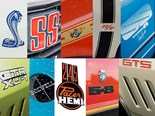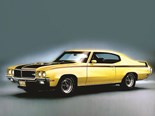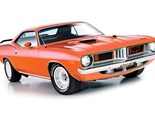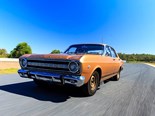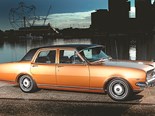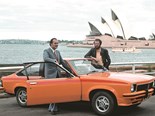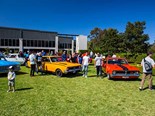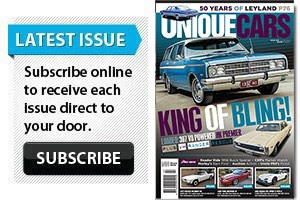Understanding our Value Guides
 It pays to invest time in assessing a car
It pays to invest time in assessing a car


|
|
It pays to invest time in assessing a car
|
Here's the full story on what's behind our muscle car value guides - well worth knowing if you're in the market.
Market Reviews
Assessments focus on market movements for various vehicles during the past 12 months and provide, where possible, guidance on realistic pricing for the different models available.
The average values shown at the end of each vehicle review are based on surveys of cars offered for sale privately and through licenced dealers in metropolitan markets throughout Australia and on the internet.
Note that the number in brackets following each average price represents the number of vehicles surveyed. Any average based on fewer than 20 vehicles is not necessarily representative of the market position of that particular model at the time.
Where I/D (Insufficient Data) or N/S (None Surveyed) is shown against a model designation, it indicates that no vehicles fitting the description were found during the survey period for this 2016 Buyers Guide.
How to read the Price Charts
The values shown in the charts are based on advertised asking prices and reported sales from all parts of Australia, using data supplied by dealers, private purchasers and auction houses. Usually, the values quoted reflect prices being achieved by vehicles sold by private vendors.
Where a model is rarely offered on the Australian market, estimates are based on overseas value guides and auction results.
Careful reading of the Condition Category descriptions below is vital to effective use of the Price Charts.
CONDITION 1
BODY: Should be free of dents, rust or obvious repairs. Minor stone chips are permissible, major blemishes or mis-matched paint work are not. Brightwork must be complete and show no evidence of damage.
INTERIOR: Seats should be covered in original pattern material free of rips or other damage, floor covering should be complete, clean and of correct material, headlining clean. Dashes especially timber or veneer should be free of cracks or discolouration.
ENGINE BAY: Clean with no water, oil, fuel or battery leaks. Hoses and belts need to be in sound condition. The correct engine, or one which was optional to the model, should be fitted. Authentic components are a must if the car is to be upgraded to concours standard.
UNDERBODY: No dents or damage to underseal, exhaust system complete and undamaged, no oil leaks from the differential, transmission or shock absorbers. All suspension components should be in good working order.
WHEELS & TYRES: Original wheels with correct hubcaps or aftermarket wheels in keeping with vehicle style and age should be fitted. Tyres need to be correct size and speed rating, with at least 50 percent original tread.
CONDITION 2
BODY: No serious rust or large areas of body filler evident. Minor bubbling in non-structural areas permissible. Paint should be good quality but may show evidence of repairs, chips and scratches. Brightwork should be good generally, but areas of dulled or scratched chrome are likely.
INTERIOR: Seats may have been re-covered but should be in good general condition. If the trim is original, areas of wear and broken stitching is likely. Floor coverings should be complete, carpets and hoodlining preferably to original pattern. Cleaning may be required.
ENGINE BAY: Engine should be of original type although original engine is unlikely. No major fluid leaks or discolouration. Cleaning will be required.
UNDERBODY: No serious damage, however scrapes and chipping likely. Minor oil leaks are common, exhaust should be complete and free from holes or burning around joints. Suspension components such as kingpins, ball joints and shock absorbers need to be roadworthy.
WHEELS & TYRES: Wheels should be the original rims or legal-sized aftermarket units. Tyres should have at least legal tread depth left.
CONDITION 3
BODY: Moderate rust is inevitable, although chassis, firewall and other structural areas should be sound. Minor body damage is common. Paint likely to be faded, with uneven colour. Body filler usually found in panels but unacceptable in structural areas. Brightwork should be basically complete and major components like the grille must be fitted. Re-chroming or polishing of most parts will be required.
INTERIOR: Seats need to be structurally sound but will normally need re-covering. Floor coverings likely to be damaged or missing. Door trims should be fitted but may need replacement. Vinyl dashboard tops usually cracked or warped.
ENGINE BAY: The engine should run but work will be needed, with the engine bay likely to be dirty and oil stained. Hoses and fuel lines may need replacement for the vehicle to be reliable.
UNDERBODY: Will show signs of neglect and damage (dents, stone damage, etc) but should be free of major rust. Chassis and structural members need to be straight. Suspension components and exhaust systems will usually need replacement.
WHEELS & TYRES: Wheels should be free of major damage, but tyres will normally need replacement.
CONCOURS
Vehicles in genuine concours condition will be completely original or rebuilt to the highest standards. Generally they are better than when new. Some cleaning or replacement of minor components may be required but anything more than minor blemishes will significantly reduce the cars chances of success.
Cars with the potential to achieve Gold standard (90 per cent or better) in open judging can cost 50 per cent or more than Condition One examples.
DISCLAIMER
The author and publisher have made every effort to ensure the accuracy of the Australian Muscle Car Buyers Guide, but we do not accept responsibility for any loss or inconvenience caused by errors or omissions.
Values are subject to change due to social, political or economic circumstances within Australia or elsewhere.
This magazine provides useful guides on trends, but they are always subject to change. We suggest any purchase like this should be done with your eyes wide open and treated as a personal reward rather than a retirement plan.
To determine the value of a specific vehicle, inspection by an appropriately qualified specialist is strongly recommended.
Australian family cars value guide home page
Unique Cars magazine Value Guides
Sell your car for free right here
Get your monthly fix of news, reviews and stories on the greatest cars and minds in the automotive world.
Subscribe

.jpg)










